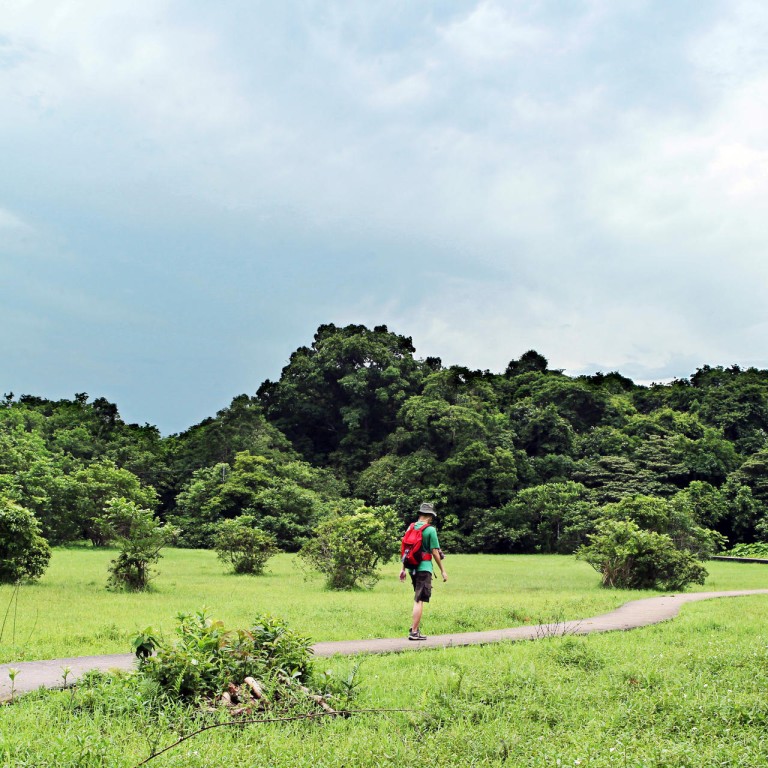
Why country parks benefit Hong Kong
Those who want to squander this urban treasure seem unaware of the vital ecological and psychological role our green areas play
Our country parks are under threat, through a potential surge in village housing in enclaves surrounded by those parks, and the shortsightedness of a government viewing protected land as ripe for development.
According to the government, 40 per cent of Hong Kong's land is designated as country parks and nature reserves. It's an impressive figure. The Agriculture, Fisheries and Conservation Department notes that few countries have even 10 per cent of their land protected in parks.
In her book , biologist Dr Stella Thrower wrote of our first country parks being established in the late 1970s, and promoted by "a few clear-sighted men against a background of apathy and vested interest".
Fast-forward to September, when we had Development Minister Paul Chan Mo-po spark outrage by saying that we should explore the possibility of developing country parks. A spokesman promptly said this view did not represent the government's stance.
But last month, former Executive Council member Franklin Lam Fan-keung said housing could be built in Lantau's country parks, and so transform it from ugly duckling to white swan. He is on a new committee advising the government on developing Lantau. Fellow member Kaizer Lau Ping-cheung added support by suggesting that if country parks were built over and locals needed an undeveloped place to relax away from the pressures of the city, they could travel to the mainland to find it.
Chan, Lam and Lau, our three not-so-wise gentlemen, are apparently unaware that Hong Kong can readily meet housing demand without touching the country parks. They also appear to view the country parks as being like empty spaces, with land that can be improved by pouring concrete, and lots of it. We might even wonder if they have visited the parks, considering a statement by Lam that there are few trees on Lantau.
Had they dropped by, they would have seen that trees abound in country parks, including on Lantau. There's a key reason for this, one that science can make clear: woodland plays a vital role in Hong Kong's water supply.
This role has been appreciated by the Hong Kong government since the late 19th century, when it began extensive reforestation to reduce erosion and silting of reservoirs on Hong Kong Island. As reservoirs were later built in the New Territories, their catchments were likewise afforested, or existing woods were protected - and today the vast majority of the watershed woodland is within country parks. Although much of Hong Kong's water now comes from the Dong River in Guangdong province, that waterway is polluted and provides water for other thirsty cities.
However, a quarter of our fresh water comes from rain that falls on our hillsides. As Christine Loh Kung-wai pointed out in 2010, when she was head of the Civic Exchange: "We would certainly do well to start making better use of our own rainfall."
Loh is now undersecretary for the environment, so perhaps might inform would-be developers of the country parks' underappreciated but key role in our water supply. And this is just one of the ecosystem services they provide.
According to the UN Environment Programme, "Ecosystem services are the benefits people obtain from ecosystems." They include food and water, flood and disease control, and recreational and cultural benefits. In combination, they "maintain the conditions for life on earth."
Officially, Hong Kong is set to put more emphasis on safeguarding our ecosystem, by developing a biodiversity strategy as part of the Convention on Biological Diversity. There's a steering committee, with Loh as vice-chairwoman, along with working groups that have done a lot of talking about the plan. (I know. I have been part of the discussions.)
Either word of the plan has not reached the ears of Messrs Chan, Lau and Lam, or they figure we aren't responsible for helping maintain the conditions for life on earth.
One way our country parks do this is by providing habitats for a wealth of plants and animals. Trees, in particular, help bind the soil - reducing landslides and benefiting reservoirs. A notable species is the incense tree, once cultivated for a local industry that gave rise to the name Hong Kong - "fragrant harbour".
There's also an impressive list of species that were first discovered in Hong Kong, and several - such as Hong Kong bamboo, Romer's tree frog and Hong Kong paradise fish - that have yet to be found elsewhere. Many of the plants and animals are beautiful. But beauty clearly does not sway development proponents, who seek more tangible benefits.
For instance, Franklin Lam suggests that developing Lantau's country parks would reduce social ills. Alas, this argument flies in the face of research showing that experiencing nature strongly benefits our mental and physical health. The findings are so persuasive that the Japanese government has established centres for forest therapy. A recent study overseen by Dr Jenny Roe, a lecturer at Heriot-Watt's school of the built environment in Scotland, found that strolling through a leafy park can reduce brain fatigue.
Roe told that a walk in a green space "is likely to have a restorative effect and help with attention fatigue and stress recovery".
So perhaps when people advise developing country parks, we should respond: "Go take a hike." Doing so just might make them think more clearly, and come up with more scientifically sound suggestions.
Martin Williams, PhD, is a Hong Kong-based writer specialising in conservation and the environment

